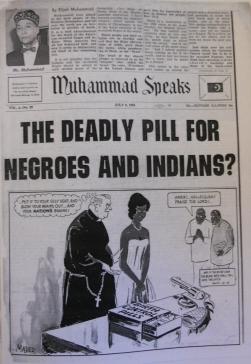From the very beginning, reproductive rights and thereby motherhood of African American women have been subject to interference from the outside and a matter of public debate. During the time of slavery African American women were seen as commodities of value not only but especially because of their ability to (re)produce. The public interest in the inner workings of the African American family did not end with slavery. Eugenic discourses that emerged in the early twentieth century have been a key element in this debate among liberals and conservatives as well as black and white reformers and activists. The aim of Anne Kathrin Overbeck's project is to show how, from the 1920s to the 1980s, eugenic arguments were combined with discursive concepts of gender, race, and class by political activists, social scientists, and politicians to create and perpetuate a deeply negative image of the African American family and to justify state interference in the reproductive rights of black women. Overbeck also considers how, as a reaction, the charge of “race genocide” was brought up within the African American community denying black women yet again the right to control their own bodies.
Gender and the gendered approach towards scientific research is—along with race—a central category of my analysis as both advocates and opponents of reproductive rights turn to science to bolster their arguments. Race itself in this discourse is used as a gendered term, turning blacks into fallible females and blaming social ills on the concrete absence of fathers as well as on “feminine” men. Science, in the form of the medical profession, sociology, and eugenics in particular, is race-ified as a white and gendered as a male domain. The analyzed, on the other hand, are almost exclusively female—which informs the binary of the problem being female and the cure male. The impact and assertiveness becomes apparent when looking at how the debate on black reproductive rights changed in the 1980s as the black women’s movement gained momentum—and gendered rhetorical strategies were appropriated and morphed by new social actors.

